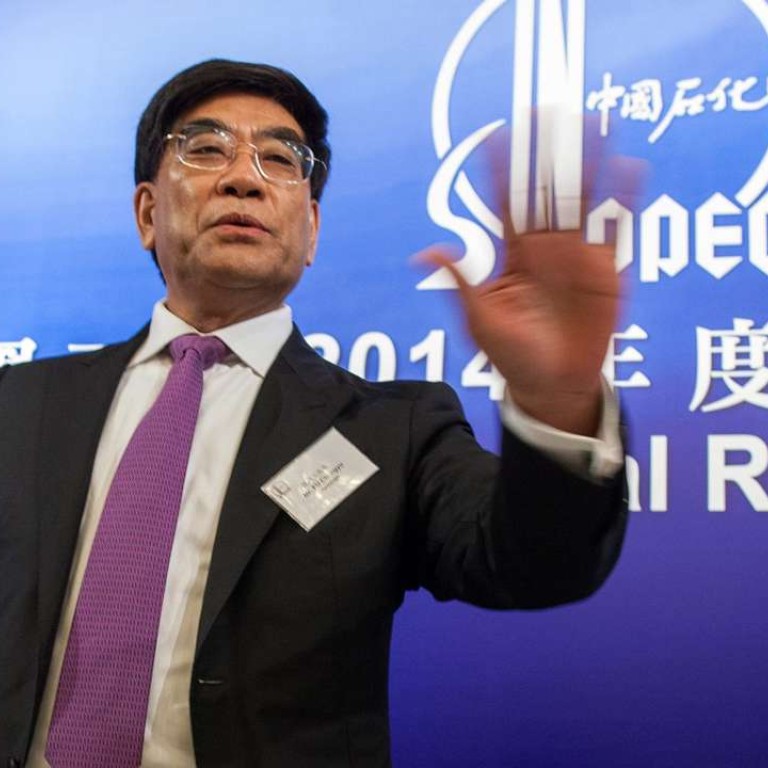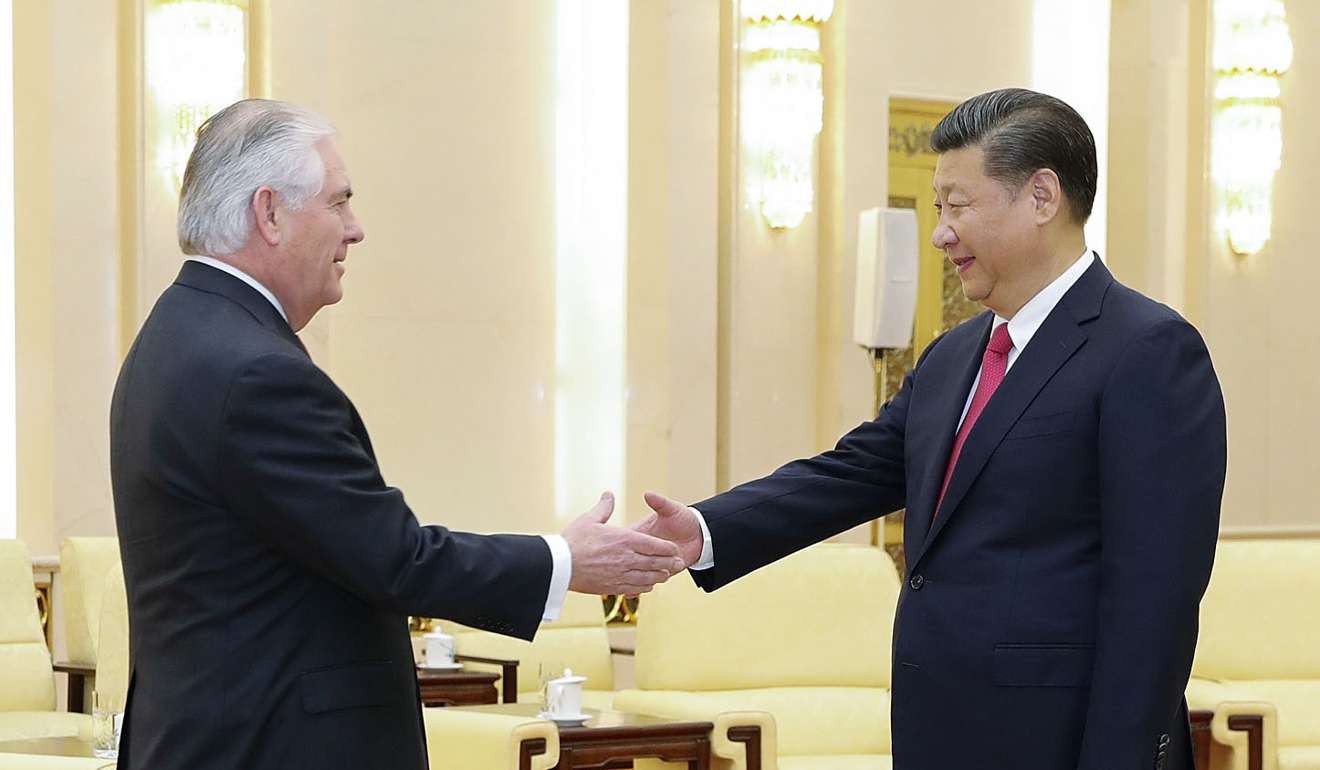
‘Tough’ Tillerson could defuse friction on North Korea, says Chinese oilman
Former Sinopec chairman Fu Chengyu says US secretary of state ‘tries to understand others’
As the head of ExxonMobil, now US Secretary of State Rex Tillerson had a knack for doing deals in China, according to Fu Chengyu, the former chairman of Asia’s biggest oil refiner.
Fu said Tillerson’s negotiating playbook could help him defuse friction between China and the United States over North Korea’s nuclear programme.
An oil veteran who led China Petrochemical Corp – better known as Sinopec – from 2011 to 2015, Fu met periodically with Tillerson. While the companies operated joint ventures that weren’t without their sore points, Fu described Tillerson as a “very good friend” who is “very strong, tough in negotiations”.
“He always tries to find the right solution to meet all the needs of the different parties,” Fu, 65, said in Beijing on March 30. “He was the one that never acted only in his own interests. He always coordinates the interests of all the parties – that is my experience working with him.”

However, while Tillerson brings years of experience navigating the subtleties of doing business in China, he also needs to manage a strident boss. President Donald Trump has criticised China over North Korea, saying it’s not doing enough to rein in the reclusive regime and ruling out Beijing’s proposal for fresh talks on Kim Jong Un’s nuclear programme. Trump has also threatened to act unilaterally against Pyongyang.
China and the US are also sparring over a move to deploy an American missile shield in South Korea, while Trump has singled out China for its trade and currency policies.
The tensions will be in focus this week at a meeting in Florida between Trump and Chinese President Xi Jinping. North Korea on Wednesday test-fired another ballistic missile, prompting Tillerson to issue a succinct statement on the US Department of State website that: “The United States has spoken enough about North Korea. We have no further comment.”
Tillerson would put America’s interests first when it comes to dealing with China, Fu said, as North Korea makes progress building ballistic missiles capable of carrying a nuclear warhead to the continental US. But he could also bring a fresh approach.
“Even in our cooperation, we would have big, big differences in the beginning,” Fu said. “And afterwards we always go somewhere in between. We never, never said go to his end or my end.”
During a visit to the region last month, Tillerson delivered a sharp warning about North Korea’s nuclear programme during his stops in Tokyo and Seoul.
But in China his tone was more measured, calling for “further dialogue” to strengthen China-US ties. He emphasised areas where the countries could work together rather than offering critiques.
“I think he’s one who tries to understand others,” Fu said. “When ExxonMobil was working in China, he tried to understand the culture of the country, the culture of the partners and then to find common areas or interests.
“Whenever there are problems, he will try to sit down and solve those issues. He will never point fingers, not like American presidents in the past.”
While in China, Tillerson said the US was seeking ties built on “non-conflict, non-confrontation, mutual respect, and win-win cooperation,” echoing language used by Beijing to describe its vision for a new model of major power relations.
The meeting between the two presidents will be one of “familiarisation with each of their working styles, with each of their needs,” said Fu, now a political adviser to the government. Some members of Trump’s administration are strongly “anti-China,” Fu said, and the leaders will have “very frank, straightforward contact or communications”.
He always coordinates the interests of all the parties – that is my experience working with him
Part of Tillerson’s job will be to manage expectations for how fast, or indeed whether, he can achieve Trump’s stated goals on North Korea.
To that end, Fu recalled a period a decade ago when Sinopec set up two joint ventures with ExxonMobil and Saudi Arabian Oil in Fujian province.
Tillerson was initially anxious because the joint venture didn’t quickly make money, Fu said. Still, when Sinopec laid out the timeline for profit and Tillerson was assured the project would turn around within that period, he showed trust in the company.
Fu cited that as an example of how Tillerson doesn’t necessarily demand immediate results.
“Once he understands and he knows not only what happened today but also what’s next, what will be the facts three years later or five years later, he will try to find a solution that will work for others.”
“He’s tough on negotiations, but he is very cooperative,” Fu said. “Any time he was working in this industry, ExxonMobil’s interest was first but that did not stop him from keeping good relationships with any politicians in any country.”

